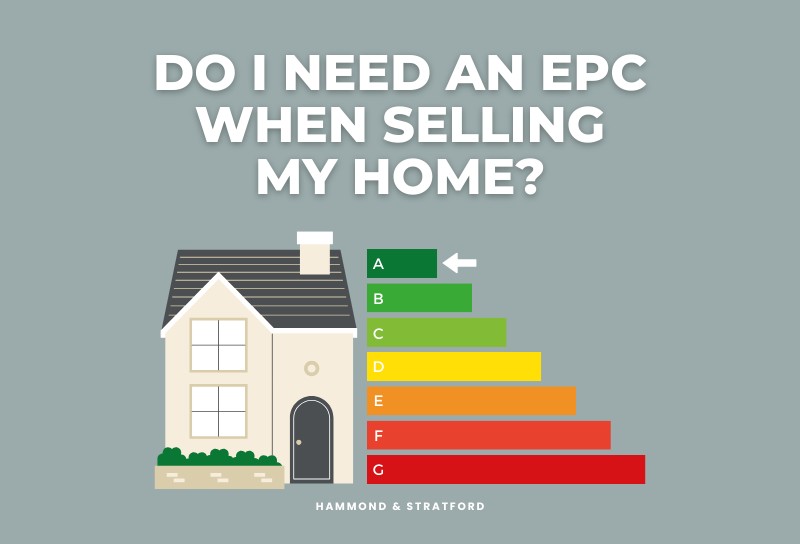
Do I Need An Epc When Selling My Home?
Selling your home can be a stressful and overwhelming process, but it doesn’t have to be. At Hammond & Stratford, we understand the importance of providing you with the knowledge and support you need to make informed decisions. That is why we are sharing everything we think you need to know about having an Energy Performance Certificate (EPC) when selling or letting your property. Read on to find out more.
1) What is an EPC?
An EPC is a document that gives you a rating for the energy efficiency of your property, from A (very efficient) to G (very inefficient). The rating is based on several factors, including the insulation, heating, and hot water systems in your property.
2) When do I need an EPC?
An EPC is a legal requirement for all buildings in England and Wales that are:
- For sale or to let
- Have a floor area of more than 40 square meters
- Built after 2008
- Have been substantially renovated
There are several properties that are exempt from needing an EPC in England and Wales. These include:
- Temporary buildings that will be used for less than two years.
- Buildings that are due to be demolished
- Listed buildings unless the improvements would unacceptably alter them
- Detached buildings with a total floor space under 50 square metres
- Buildings that are currently unoccupied
If you are unsure whether your property is exempt from needing an EPC, you can always speak to us for more information.
3) How much does an EPC cost?
It can vary depending on your assessor of choice, but typically an EPC costs between £75-100, our team can put you in touch with a registered assessor to get an EPC.
4) How long are EPCs valid?
EPCs are valid for 10 years in England and Wales.
However, there are some exceptions. If you make significant changes to your property that affect its energy efficiency, you may need a new EPC. Examples of changes could include:
- Adding or replacing insulation
- Installing a new heating or hot water system
- Making major changes to the layout of your property i.e., an extension
5) What are the benefits of having an energy-efficient property?
- An energy-efficient property will waste less energy, which can lead to lower energy bills.
- Buyers and tenants are increasingly looking for energy-efficient properties, so a more energy-efficient property could be sold or let faster and for a higher price as it will be more desirable.
- Energy efficient properties have a lower environmental impact by reducing energy use, greenhouse gas emissions, air pollution, water consumption, and waste production.
Additional EPC requirements:
- The EPC must be produced by an accredited energy assessor
- The EPC must be valid for 10 years
- The EPC must be made readily available when it is marketed for sale or rent
- The EPC must be provided to the buyer or tenant before they enter into a contract
If you’re considering a move this summer, or are just curious to know the value of your home, get in touch with our amazing team here to find out more and discuss how we can help with your move.

 Ask a Question
Ask a Question